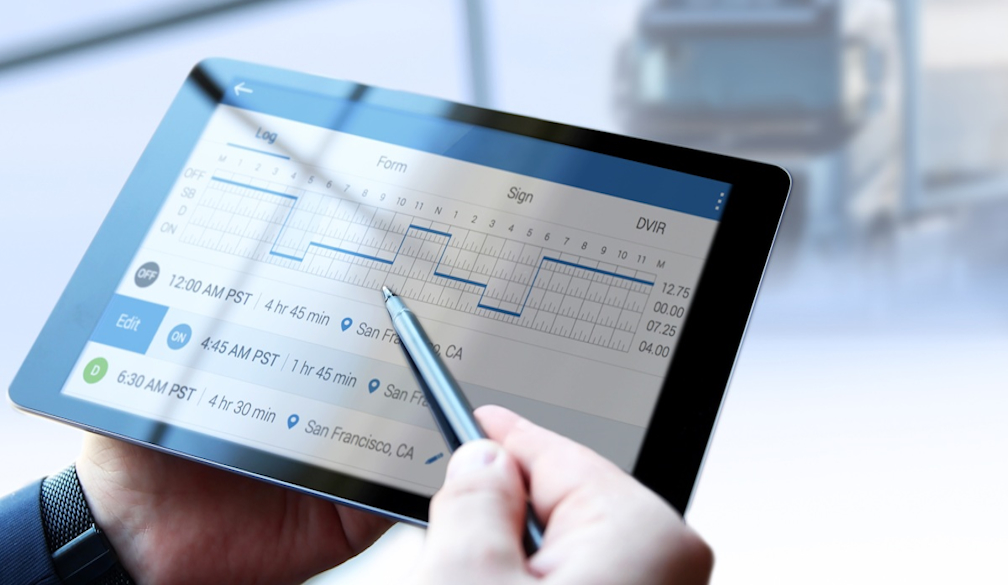The Evolution of Electronic Logbooks: A Game Changer for Fleet Management

There used to be a time when managing trucks, vans or any kind of fleet meant relying on paper logbooks. These were notebooks where drivers wrote down everything manually, including how many hours they drove, how far they went, and when they stopped to rest.
Drivers, operators and managers relied on this method because it was simple, tangible, and universally understood. But then, this old system wasn't reliable. Drivers sometimes felt pressured to work longer hours than allowed, and they would change their logbooks to make it seem like they followed the rules.
These long hours often made drivers tired and caused several fatal accidents. It was clear something needed to change. And it did, an electronic logbook was created.
How Fleet Management Moved from Paperbacks to Electronic Logbooks
The first electronic logbooks appeared in the US in the mid-1980s. Back then, they weren’t very reliable because the technology was not as advanced as it is today. These devices had trouble sending data from the truck to the company’s main office. Because of this, they weren’t widely used, and people didn’t trust them.
Back in 1986, the Insurance Institute for Highway Safety realised that electronic logging devices (ELDs) could make roads safer by ensuring truck drivers followed their hours. They pushed for ELDs to be mandatory, but trucking companies pushed back, worried about costs and losing control. A compromise led to a simpler device called AOBRDs, but ELDs were shelved for years.
In 2000, the U.S. government revisited ELDs to curb drivers breaking hour limits. After setbacks, the MAP-21 Act of 2012 finally made ELDs mandatory. By 2017, all trucks had to use them. Some companies welcomed the change, but others felt it was too expensive and restrictive.
It was also in the 2000s that these ELDs began to gain traction in Australia, although, unlike in the US, they never were and still aren’t mandatory.
ELDs have had a major impact on trucking. They’ve made it harder for drivers to cheat on their hours, which means fewer accidents caused by tired drivers. They’ve also helped trucking companies manage their fleets more efficiently.
Even though it took decades for ELDs to become standard, they’ve completely changed how the trucking industry works and made it safer for everyone.
How Logbooks Have Transformed Efficiency and Operations for Fleet Management
Here are some of the benefits that electronic logbooks have brought to fleet management:
Staying Compliant
With electronic work diaries (EWDs) now approved for use in place of paper logbooks, drivers can log their hours more accurately, and fleet managers and owners can track the compliance of their drivers. The Australian Privacy Principles (APPs), part of the Privacy Act 1988, govern how organisations collect, store, and manage personal information.
When using electronic logbooks, businesses are required to follow these principles, ensuring that the data collected, such as driver logs, vehicle maintenance records, and delivery information, is kept secure and used only for its intended purpose.
The electronic logbook app is built to help with this by meeting all the rules set by authorities. These apps come with features like electronic signatures, time stamps, and user authentication to make sure the data stays safe and can’t be changed or tampered with.
You don’t have to worry about errors or fines related to non-compliance because the app makes sure your records are secure and correctly kept.
Better Efficiency
Manual data entry can lead to mistakes, and when you’re managing a fleet, those mistakes can cost time and money. The great thing about electronic logbook apps is that they reduce human error by automating calculations and formatting. The app does a lot of the work for you, ensuring that everything is entered correctly, every time.
Some apps even go a step further with features like QR and barcode scanning which let drivers scan barcodes on vehicles or documents, automatically logging the data. This not only speeds things up but also improves accuracy, and with them in place, you can make the process less prone to mistakes and much more efficient.
Improved Data Tracking and Access
When you rely on paper logbooks, only one person can access and update them at a time. This can slow down collaboration and make it harder for teams to work together.
Also, with paper logbooks, it can be difficult to know what changes were made or who made them. With electronic logbook apps, this isn’t a problem. These apps have version control features that let you see the history of changes made to the logbooks. You can track who made a change when it happened, and what exactly was changed.
This makes it easier to stay on top of things and ensures that your data is always accurate and up to date. It also brings a sense of transparency and accountability to the process, especially in industries such as transportation where safety and compliance are very important.
Offline Access
Sometimes, internet access is limited or unavailable, especially in places like cleanrooms or remote locations. One of the best things about an electronic logbook is that it works offline.
Even if your team isn’t connected to the internet, they can still log data securely. Once the internet is available again, the app will automatically sync the data, and ensure that everything is up-to-date and accurate.
This is a huge benefit because it keeps operations running smoothly no matter where your team is working. You won’t have to worry about missing information or gaps in your logs at all.
With all that said, are you ready to eliminate paperwork, embrace technology and simplify fleet management? If yes, start using an NHVR-approved electronic recording system and see the difference for yourself.
Also Read: Electronic Logbooks: A Game-Changer for Fleet Management and Compliance








